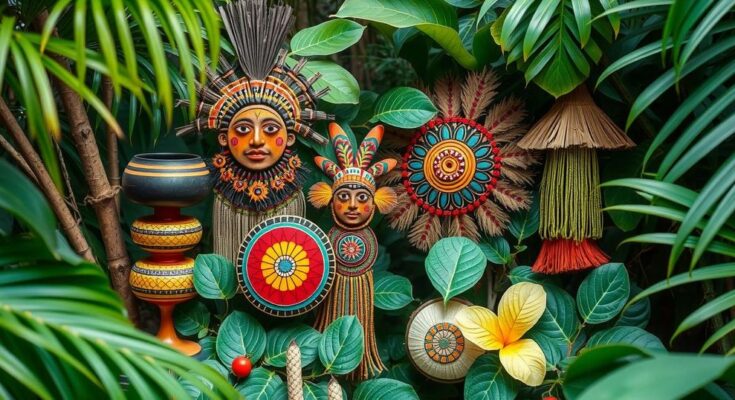This article discusses a remarkable initiative in Ecuador’s Amazon aimed at preserving Kichwa traditions while promoting sustainable living among children and the community. Through experiential learning, workshops, and a focus on local heritage, the program equips participants with the knowledge and skills necessary to navigate environmental challenges and reconnect with their cultural roots, emphasizing the importance of sustainability.
In Ecuador’s Amazon, a transformative educational initiative fosters sustainable living by reconnecting children and the Kichwa community with their cultural roots and natural environment. Located in Dahuano, near the UNESCO Biosphere Reserve, this learning space promotes an appreciation for nature, traditions, and sustainable practices among the Amazonian Kichwa people.
Weekly workshops and reading clubs are organized for students, teachers, and community members to cultivate innovative solutions addressing sustainability topics. Key areas of focus include climate change, food resilience, and the importance of traditional Amazonian ingredients, encouraging children to explore their culinary heritage through authentic, hands-on activities such as food tasting.
Lucia Chavez, an enthusiastic teacher, has been pivotal to the initiative since her arrival four years ago, aiming to support the community through education. She asserts, “Some people think of the Amazon as a savage, pristine, dangerous place… we want to bring those traditions back and teach our children to be proud of their heritage.” This approach enables both children and adults to develop resilience and effectively adapt to environmental challenges, thereby preserving their cultural identities.
Chontacuro, an edible insect once central to the Kichwa diet, illustrates the importance of reconnecting with traditional food sources in response to crop shortages and environmental issues. Lucia highlights that rediscovering such local ingredients is pivotal for nutritional security and cultural heritage.
Lucia’s educational approach strives to empower children, providing them opportunities to articulate their thoughts and develop self-confidence. Through interactive discussions, children engage with critical ecological concepts, demonstrating their understanding of the interplay between nature and sustainability. For example, in response to questions about the sun’s impact and potential environmental changes, they highlighted the necessity to engage in actions such as tree planting and water conservation to foster a greener future.
This learning space represents an innovative method of teaching environmental education beyond conventional schools, combining practical activities with lifelong learning, which significantly enriches children’s understanding and application of sustainable practices.
UNESCO encourages member states to integrate Education for Sustainable Development (ESD) into their educational systems through comprehensive initiatives rooted in the commitment to achieve all 17 Sustainable Development Goals (SDGs). The organization’s support includes providing technical guidance, capacity building, and knowledge sharing to advance ESD initiatives effectively.
The Kichwa community’s educational initiative exemplifies the power of reconnecting indigenous knowledge with sustainable living practices. By fostering children’s cultural identity while addressing contemporary environmental challenges, this program is not only preserving Kichwa traditions but also paving the way for a greener future. Such efforts align with global initiatives like UNESCO’s ESD framework, emphasizing the need for innovative approaches in education to achieve sustainability and resilience.
Original Source: www.webwire.com




